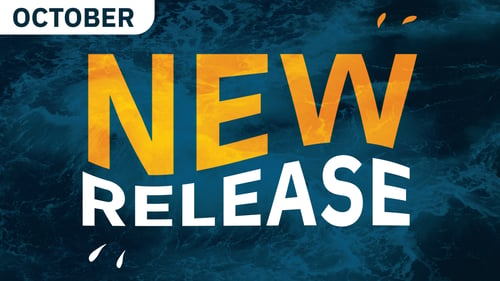What's new in Payara Server 164?
Originally published on 14 Nov 2016
Last updated on 06 Jan 2020
 by Mike Croft
by Mike Croft
Another quarter, another release! After an eventful 2016, November brings with it the final release of the year for Payara Server. This year, we've seen new services like Request Tracing and Health Check added, as well as the Slow SQL logger and SQL Trace Listeners. Revisiting the version of the documentation from 1 year ago and comparing the amount we have added since then is, frankly, astonishing!
Despite a bumper year for both new features and bug fixes, work continues apace! Below is a short summary of some of the things to look out for in a release that caps an incredible 12 months.
Expanded Request Tracing
Request Tracing was released as a tech-preview in our 163 release and, since then, we've added a lot more features!
Now, all the following request types are traced when the service is enabled:
- REST (JAX-RS endpoints)
- Servlet (handling HTTP requests)
- SOAP Web Service Requests
- WebSocket
- execution of EJB timers
- inbound JMS message handled by a message-driven bean
- JBatch job is created
- a new task is executed in a managed executor
To make it a little easier to use, we've also enabled the log notifier by default. You can read more about the service in our documentation.
There are also now commands integrated into Payara Micro for request tracing, so that it can be enabled with a single command, as detailed in the documentation.
Request Tracing is no longer a tech preview, but we would still advise caution and lots of testing to be sure of the performance impact before using the service in production.
Redesigned Admin Console view of Hazelcast cluster members
In previous releases, we have had all the functionality needed to make effective use of Hazelcast, but the user experience has not been as good as it could have been. After a lot of discussion and design iterations in the office, we have begun a push towards a single, domain-wide Hazelcast cluster with deployment groups.
We have also added the ability to view information about the Micro and Payara Server instances in the DAS Hazelcast cluster: Instance name, Host name, HTTP port(s), HTTPS port(s), Admin port, Hazelcast port, Instance type (Micro, Das or Instance), deployed applications (the names of them anyway), and whether or not it is a Hazelcast Lite node.
Enhanced control over implicit CDI scanning
We have already added the capability to disable implicit CDI scanning but the default admin console setting was to enable it at deploy time. We have now made a change so that the value added to the deployment descriptor is the overriding setting and the admin console setting will be ignored.
For even more control, we have added the ability to explicitly include or exclude JARs within an Application Deployment from CDI scanning. You can now, for example, include all JARs by default and exclude some named ones, or do the opposite and exclude all by default and only include some named ones.
Minor new features
We have also added some other new features in this release:
- Compress Log Files on Rotation
- Output Logs in JSON
- Further Improvements to the production-ready domain
payaradomain
Compressing log files on rotation will help you with disk space concerns, but it should also not affect the capability to remotely view log files from within the admin console. Logs can now be output in JSON format - our expected use-case for this is to be consumed by log monitoring tools such as logstash or loggly. Full details of the payaradomain and its differences to the default domain1 can be found in our documentation.
Component upgrades
There have been, as usual, a number of upgraded packages in Payara Server for this release. Notably, Payara Server now ships with Hazelcast 3.7.x (you can read more of what's new in that version on the Hazelcast blog.
[PAYARA-1015] - Upgrade Jersey to 2.22.2 [PAYARA-1016] - Upgrade Hazelcast to 3.7.1 [PAYARA-1017] - Integrate and patch Eclipselink 2.6.3 [PAYARA-1027] - Upgrade mail version to 1.5.6 [PAYARA-1028] - Upgrade btrace version to 1.2.3 [PAYARA-1029] - Upgrade jackson version to 2.8.1 [PAYARA-1033] - Upgrade to Grizzly 2.3.28 [PAYARA-1112] - Upgrade Weld version to 2.4.0.Final
The full list of enhancements and fixes is available on the Release Notes page here.
Related Posts
What’s New in the October 2024 Payara Platform Release?
Published on 09 Oct 2024
by Luqman Saeed
0 Comments
We're happy to announce the latest release of the Payara Platform, bringing significant improvements and updates across our Community and Enterprise editions (download Payara Enterprise trial here). This release focuses on enhancing security, ...
Join Live Webinar Series - Boost Your System Performance: Troubleshoot Faster & Cut GC Waste
Published on 07 Oct 2024
by Dominika Tasarz
0 Comments
We’re excited to invite you to two informative webinars happening later this month, which we're running in collaboration with yCrash.
During the first webinar, you will learn how to capture 16 essential artifacts that can dramatically ...



